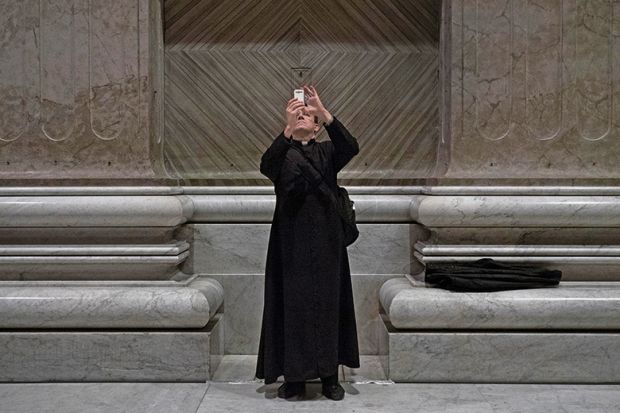Digital media offer Christian churches many new opportunities to get their messages across. Yet online bullying and abuse along with the development of artificial intelligence, for example, also raise many acute practical and ethical issues that traditional theologians have never had to address. So what does it mean for Christians to operate within and to reflect seriously on today’s new digital realities?
Such questions will be addressed head-on in Durham University’s pioneering MA in digital theology, starting in September.
The MA will be based around two core modules. One will explore the theoretical aspects of “digitally mediated Christianity” to be found in developments such as Bible apps.
Questions under consideration, said Peter Phillips, director of Durham’s CODEC Research Centre for Digital Theology, will include “Can we do religion online? Can we create digital communities? Can Facebook be your church? And can you have sacraments online?”
“The breaking of bread is an essential act of Christian worship,” he added, although different denominations disagree about whether this requires the presence of a priest. Could such a sacrament be “mediated online” in “a distributed form of Communion”?
The digital future also raises a number of deeper theological questions to be explored in a second module.
Dr Phillips pointed, for example, to “the humanity-deficit syndrome” to be seen in “the subhuman behaviour of keyboard warriors in the comments sections of newspapers and websites…But if humans are created in the image of God, why does that change when we go online?”
Familiar theological notions such as incarnation, salvation and sin may also acquire unexpected new digital dimensions. As AI develops, suggested Dr Phillips, we may need to ask “what happens when a sentient being encounters religion. Does it need to be saved? Is it possible for them to have a connection with something they think of as divine? Or are they part of human rather than divine creation, which means that salvation is not a relevant concept?”
Canonical theologians such as Augustine and Aquinas obviously had nothing to say about online pornography or robot ethics. Many of the prophets of techno-utopias or dystopias have had little interest in religion. Dr Phillips wants to bring these two strands of thought into dialogue, to see if they can illuminate each other. Might the familiar Christian distinction between physical and spiritual realms, for example, help us to make sense of the gulf between the real and virtual worlds?
Dr Phillips expects most applicants to be either “already engaged in Christian ministry” and looking for professional development, or to be “Christians working in the digital industry who want to reflect on how their day job connects with their faith”.
POSTSCRIPT:
Print headline: ‘Can Facebook be your church?’
Register to continue
Why register?
- Registration is free and only takes a moment
- Once registered, you can read 3 articles a month
- Sign up for our newsletter
Subscribe
Or subscribe for unlimited access to:
- Unlimited access to news, views, insights & reviews
- Digital editions
- Digital access to THE’s university and college rankings analysis
Already registered or a current subscriber? Login








